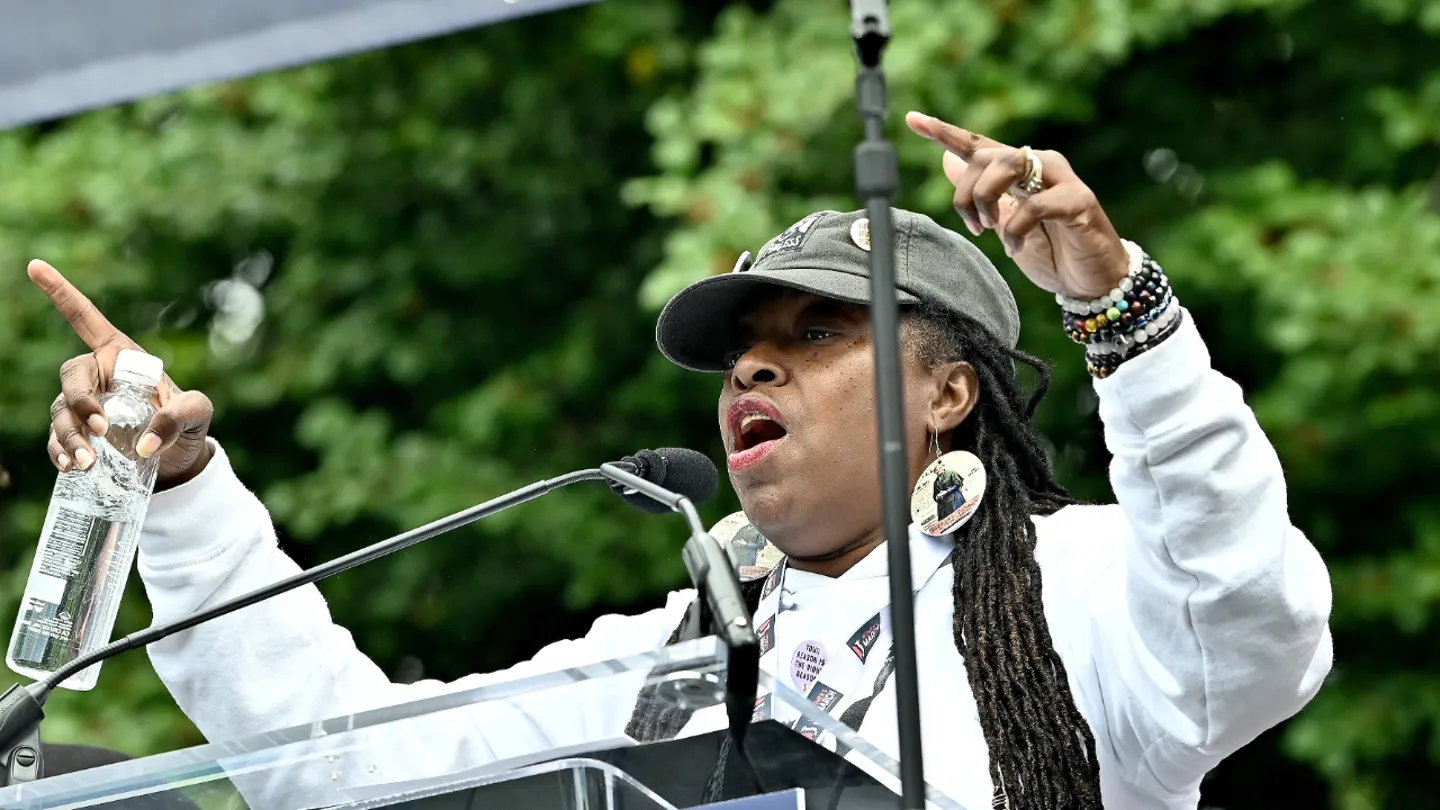In the wake of President Trump’s announcement to federalize Washington, D.C., in response to escalating crime rates, the stage has been set for a clash of ideologies and activism, with prominent figures like Nee Nee Taylor leading the charge against what she deems as an aggressive move that undermines the community’s rights.
Nee Nee Taylor, known for her role as the executive director of Harriet’s Wildest Dreams and as a co-founder of Free DC, has long been a vocal proponent of defunding and abolishing the police, advocating for alternative approaches to public safety. In the recent protests that erupted following Trump’s press conference, Taylor was at the forefront, rallying supporters with impassioned calls for justice and resistance.
Embodying the spirit of civil rights icons like Harriet Tubman, Taylor’s online presence, under the moniker “SpiritOfHarrietTubman” on social media platforms, serves as a platform for her advocacy for radical change. Her calls for the abolition of the police, alongside demands for the release of protesters and the dismantling of oppressive systems, resonate deeply with her followers and supporters.
The rhetoric espoused by Taylor and her organization, Harriet’s Wildest Dreams, extends beyond the issue of policing, encompassing a broader spectrum of social justice causes. From condemning law enforcement agencies like ICE to critiquing the criminal justice system’s treatment of marginalized communities, Taylor’s activism is characterized by a fervent commitment to challenging systemic injustices.
The debate over defunding the police is not merely about reallocating resources but reflects a broader discourse on community empowerment, social equity, and public safety. While critics may question the efficacy of such proposals, proponents like Taylor argue that true liberation can only be achieved by dismantling oppressive structures that perpetuate harm and inequality.
As the nation grapples with rising crime rates and calls for reform reverberate across the political landscape, figures like Nee Nee Taylor serve as catalysts for change, challenging conventional notions of law enforcement and advocating for a more just and equitable society. Their activism, rooted in a deep-seated commitment to advancing social justice, underscores the complexities and nuances of contemporary movements striving for transformative change.
In the midst of these turbulent times, the clash between traditional approaches to public safety and calls for radical transformation poses fundamental questions about the role of law enforcement, community resilience, and the pursuit of a more equitable future. Through her advocacy and activism, Nee Nee Taylor stands as a symbol of defiance and resilience, embodying the spirit of resistance against oppression and injustice.
In conclusion, the discourse surrounding defunding the police and reimagining public safety is far from settled, with activists like Nee Nee Taylor at the vanguard of a movement seeking to redefine the boundaries of justice and equity. As the battle for social change unfolds on the streets of Washington, D.C., the echoes of dissent and solidarity reverberate, underscoring the enduring quest for a society where justice, freedom, and equality prevail.

